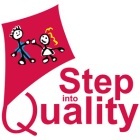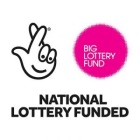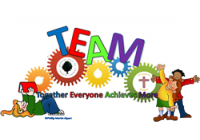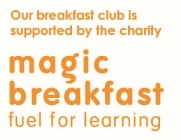The family of St Luke and St Philip’s takes great pride in being a caring and inclusive school. Our curriculum is personalised to the needs of all children, ensuring they play an active role in their learning and achieve to their fullest potential.
All our staff, Governors and Cidari Multi Academy Trust are dedicated to the needs of every child; not just academically, but physically, socially and emotionally. Our school vision and strong Christian ethos underpin everything we do, with the aim of supporting our children as they grow into fully rounded individuals, preparing them for their next steps as they journey through life.
SENCO

Vacancy
SENCO
We work closely with any children who may have Special Educational Needs and Disabilities (SEND) across school, either with the children individually, or by supporting staff to provide for the needs of our children. We value involvement from our parents and carers and it is actively encouraged; as is the teamwork between all staff, with the support of our Governors.
Please read the information below and have a look at our SEND policy in the policies tab, to find out about our provision for children with Special Educational needs and Disabilities. Alternatively, if you have any questions about the provision for your child, please do not hesitate to contact school and speak with me.
SENCO - Special Educational Needs Coordinator
SEND Information Report 2025-26
1. What kinds of special educational needs do we make provision for in our school?
St Luke and St Philip’s is a Church of England Primary Academy and is a member of the Multi Academy Trust owned by Cidari.
‘The family of St Luke and St Philip’s will ensure excellence is encouraged, minds are opened, diversity is embraced, respect is expected and talents are nurtured under the umbrella of God’s love’
Our school provides grounding in the Christian Faith for all its children with emphasis on collective worship as part of its daily life. Christian values are built into the ethos and teaching of our school with the support of all Governors and staff for its Christian foundation. We also seek to encourage an understanding and respect for other world faiths.
We value and will continue to strengthen links between school, home and parish. Through these aims the school hopes to encourage all children to develop their maximum potential.
2. How does our school know if your child needs extra help?
Our children’s wellbeing is of the utmost importance to all the staff. Children’s progress is monitored daily through teacher evaluations and observations, with more detailed analysis of assessments each half term to track academic progress. If a teacher is concerned about a child’s progress, or social and emotional wellbeing, the teacher will discuss this with the parents or carers, and pass on the concerns to the Inclusion Manager and Pupil Wellbeing Lead. We then follow the graduated approach which is to assess, plan, do and review cycle to ensure the children’s needs are being met in order for them to make progress. Please see the SEND Policy on the website for more details.
Individual achievable targets will be set, involving the child if he or she is of an appropriate age and level of understanding, and parents will receive a copy of the targets. The Inclusion Manager may complete some assessments to help pinpoint specific areas of need. If the child is still experiencing difficulties and not progressing with the individual targets, a referral to outside professionals will be made, for advice, with permission from parents and carers.
Please see the SEND policy on the school website for more detailed information.
3. Who can you speak to at our school if you think your child may have special educational needs?
If parents or carers have any concerns regarding their child’s progress or social and emotional wellbeing, please speak to the child’s class teacher or the Inclusion Manager as soon as possible. You may also wish to speak to our Headteacher or Pupil Wellbeing Lead. Your point of view as a parent or carer is invaluable.
Headteacher – Miss Samantha O’Connell
Pupil Wellbeing Lead – Miss Tracey Etchells
4. How do we know what progress your child is making and how will we keep you informed?
Class teachers monitor the progress of all children in class carefully, with detailed analysis of academic progress each half term. Our Inclusion Manager has close links with the SEND governor Mr Alec Johnstone, who visits school and has meetings with the Inclusion Manager to ensure the needs of the children are being met.
For children who have individual targets, the Inclusion Manager holds regular review meetings and monitors their progress through discussions with the class teachers, teaching assistants and the child involved. Parents and carers are given copies of new targets, and asked to comment with their views about their child’s progress. Parents and carers are invited to make an appointment to see the Inclusion Manager if they wish to discuss progress or the new targets. The Inclusion Manager, class teachers and Support Assistants strive to make themselves available at practical times during the working day for parents and carers to have informal chats about their child’s progress.
Parents have also built good relationships with the Pupil Wellbeing Lead and often call in to meet with her as and when the need arises. If a child has an EHC plan, then annual review meetings are held with parents and carers, and all professionals involved with the child. There are also two Parents/Carers meetings each year for all children in school where progress and attainment is discussed with parents and carers.
Where children take part in specific interventions, parents and carers are informed by letter beforehand about what the intervention is and why their child is taking part. At the end of the intervention, an evaluation report is given highlighting the progress their child has made.
5. How will our school support your child and how will the teaching be adapted to meet their needs?
Each class has an additional adult in the classroom during morning lessons and some SEND children receive 1:1 adult support. In the afternoons, support staff deliver personalised support specific to children’s needs as and when required. Teachers use resources specific to children’s needs where required, for example laptops, coloured reading rulers and writing paper, visual timetables, practical resources ‘move and sit’ cushions and writing slopes, and radio aids. Where we have referred a child to outside professionals for advice, staff will follow the strategies provided by the professionals and this is organised and monitored by the Inclusion Manager.
Lessons and resources are adapted or differentiated to suit the needs of the children, making sure tasks are challenging but achievable. Where children have individual targets, the class teachers will take these into account when planning activities. Teachers ensure all children are included in every aspect of the curriculum.
Where children need additional support in areas, they take part in specific interventions run by support staff, and overseen by the Inclusion Manager and senior leaders in school.
Teachers are trained in supporting children with a wide range of special educational needs. Staff in Reception class use Makaton as a way of communicating, visual aids and timetables are used across school, and resources are adapted so they are communication friendly.
To support those who need a sensory break, or who follow a sensory diet, children can access the sensory room (The Ark), which provides a calm environment and a break from the classroom. It is also a learning space for children following individual learning programmes, utilising TEACCH strategies and sensory stories with linked activities.
Where teachers have received strategies from outside professionals, these are incorporated into the daily teaching routine.
Please see the SEND policy on the school website for more detailed information.
6. How are decisions made about the type and how much support my child will receive?
Thorough tracking of children’s progress and observations by class teachers and the Inclusion Manager may highlight that a child would benefit from some additional support and individual targets. External professionals may also be requested – with parents and carers permission – to work with the child to help pinpoint specific areas of need.
If the additional support the child receives in school still does not help the child to progress and achieve, after discussions with parents and carers and the relevant external professionals, the Inclusion Manager may apply for the child to have ‘top up’ funding. Applications are made to the local authority for an Education, Health and Care Plan (EHC plan). This additional funding will then be used to enhance the child’s learning. This could be through providing the child with 1:1 adult support or purchasing specific equipment and resources. For more information on this process, please look at the Blackburn with Darwen website www.bwd-localoffer.org.uk
7. How will our school help you to support your child’s learning?
We regularly run parent/carer workshops for curriculum areas such as Maths, English, Phonics and reading at home. The school website holds information on each class’ curriculum, with links to useful websites to help with homework matching the curriculum.
Individual targets sent home will have recommendations for parents and carers to help their child achieve the targets.
If a child has been assessed and observed by external professional, strategies given to class teachers will also be shared with parents and carers. If necessary, the Inclusion Manager and the Pupil Wellbeing Lead can arrange parent support classes for specific learning needs, for example ASD, ADHD.
If there are range of professionals involved with a child, parents and carers may wish the school to open a CAF (common assessment framework) where all the professionals meet on a regular basis with the parents and carers to help make sure the child and family needs are being met.
The Inclusion Manager also has an open door policy and if parents need advice or guidance on their child’s education and learning then they can speak with her.
8. What specialist services and expertise are available or accessible through our school?
At St Luke and St Philip’s we work closely with a range of external professionals to ensure we are providing for our pupils. These include:
- Speech Therapist from Speech Bubble - who works in school one day a week
Advisory teachers from Inclusion Support Service for children with:
- Autism
- Developmental Language Disorder
- Physical difficulties
- Hearing Impairment
- Visual impairment
- Social, Emotional and Mental Health
- Curriculum access difficulties
Other external professionals we regularly work with are:
- Educational Psychologists
- MHST (Mental Health Support Team)
- NHS Speech and Language therapists
- Occupational therapists
- School nurse and health visitors
Additionally, we have a Pupil Wellbeing Lead employed by the school to support children and families with social and emotional needs and promote positive learning behaviours.
We also employ a counsellor one morning a week, to lead play therapy sessions with individual children.
9. How are the staff in school supported to work with children with special educational needs and what training do they have?
We provide in-house training regularly to support our learning support assistants along with staff meeting training and up dates for our teachers.
All staff receive regular training sessions on a range of special educational needs pertinent to our children and undertake training in relation to safeguarding. The training has included Makaton, ASD, ADHD and Attachment disorder. Some staff receive specialist training where necessary relating to the children they work closely with. Training on Physical difficulties, developmental language delay and the impact in the classroom will soon be delivered for all staff.
We also train staff on necessary medical needs. Staff have recently had training about epilepsy, asthma and allergies, including anaphylaxis. This is updated regularly and depending on the child’s needs.
Our staff have experience of working with children with a range of special educational needs, including Autism, ADHD, Dyspraxia, Speech and language difficulties, visual impairment and hearing impairment.
10. How will our school ensure that your child is included in activities outside the classroom, including physical activities and school trips?
All experiences planned for our children are fully inclusive. At St Luke and St Philip’s all children take part in one PE lessons each week with additional physical activity throughout the week. Currently children in Years 1,2,3,4,5 and Year 6 go swimming at certain stages throughout the year as part of their PE curriculum. All children from Reception to Year 6 receive a Music lesson every other week delivered by a specialist Music teacher, a specialist Gymnastics teacher delivers weekly sessions to Reception class for a full year and other classes on a rota and a specialist PE teacher delivers PE lessons to Years 1 and 2, along with additional gross motor skills sessions for Reception and KS1.
In Key Stage 2, the children are benefiting from experiencing music being taught by the Blackburn with Darwen Music Service, covering singing, drumming and ukulele. Children may also wish to have individual or small group music lessons where they are taught how to play the guitar or the keyboard.
We run a Breakfast Club from 7:50 every morning which provides a healthy breakfast and a range of stimulating activities. We also have a selection of sports based after school clubs which are run by BwD Edstart and a library club.
At St Luke and St Philip’s we strive to give the children learning experiences outside of the classroom. Each class goes on exciting and educational day trips and make full use of our beautiful grounds and local parks to enhance our personalised curriculum.
We also have a fully inclusive annual residential trip to Winmarleigh Hall for children in Year 5 and 6, focusing on outdoor pursuits, team building exercises and developing confidence and self-esteem.
In conjunction with St Luke's Church we run a "Messy Church" after school club once a month, which involves taking part in various activities.
11. How will our school support your child’s overall wellbeing?
St Luke and St Philip’s is a very caring school and staff pride themselves on making sure our children feel happy, safe and able to achieve.
We follow the My Happy Minds programme as a whole school, where the chidlren learn about how the brain works and how to keep the mind healthy. Parents also have access to an app with linked activities for at home. Nurture groups, social skills activities and friendship groups are be provided for children who find it difficult to socialise. The Senior Leaders support children at lunchtime who may be having difficulties socialising or find a busy playground a challenging environment. Our year 6 children are buddies with our Reception children and support them throughout the year.
We also employ a school counsellor once a week to deliver 1:1 play therapy sessions for identified children.
The Inclusion Manager monitors the wellbeing of all children with special educational needs very closely, through observations and regular informal discussions with class teachers, teaching assistants, parents and the children. We work closely with MHST for any children who have been referred, to ensure we are providing the best care for children who have emotional, mental and social difficulties and require external professional help.
Our Pupil Wellbeing Lead liaises closely with parents and carers to support any additional needs outside of school that we can help with. All staff are First Aid trained, with several members of staff having completed the Paediatric First Aid training.
12. How accessible is our school both indoors and outdoors for children with special educational needs?
All buildings are on one floor and we have a disability toilet. Staff are trained in basic Makaton where necessary for children with speech and language difficulties. Classrooms are communication and dyslexia friendly and visual timetables are displayed in each class. We have wonderful outdoor spaces all around school which are easily accessible and used regularly as an alternative learning environment.
Teachers use resources specific to children’s needs, for example laptops, coloured writing paper, visual timetables, ‘move and sit’ cushions and writing slopes.
13. How will our school prepare and support your child when joining school and when transferring to a new school?
Staff from the Foundation Stage will visit you in your home prior to your child first starting at St Luke and St Philip’s. An information meeting is held in school for all parents and carers, and children have two visit days, where they can visit before fully starting. Parents are given a booklet with photographs of key members of staff and key areas around school. There is also a video of Reception class and an interactive tour of the school on the school website. There is a staggered start for Reception class in the September and once started at school, another Parents/carers meeting is held.
As your child progresses through school, there will be transition sessions where the class meet with the next teacher and spend some time in the new classroom prior to moving up. Any children who find transition periods particularly difficult or stressful, will have an individual transition plan. This may involve extra sessions in the new class, a picture or photo book of new staff, different locations in school the child might be using, and a visual timetable of class routines.
On leaving St Luke and St Philip’s to go to Secondary school, the Inclusion Manager arranges transition meetings for any children for whom transition is a concern -with parents and carers, other professionals involved and staff from the Secondary school. The aim is for the new school to have a full picture of the child and to be ready for their start. The child will have informal visits to the Secondary school additional to those arranged for all children, to help them feel secure and comfortable in what will be their new surroundings.
The MHST team also deliver transition sessions for any children who have been identified as having concerns about moving on to high school, and the class teacher delivers transition sessions to enusre all children feel as prepared as possible.
14. Who can you contact for further information?
For further information please do not hesitate to contact school and make an appointment to see either the Inclusion Manager or the Headteacher.
Headteacher - Samantha O’Connell
Pupil Wellbeing Lead - Tracey Etchells
Tel – 01254 54866
Email – slspoffice@cidari.co.uk
Blackburn with Darwen’s local offer sets out a range of support and services available to you and your child. This can be accessed at Special educational needs and disabilities (SEND) local offer | Blackburn with Darwen Borough Council
Please see the sub-pages below to find out information on parental support for different SEND needs.






.png)
.png)

.jpg)